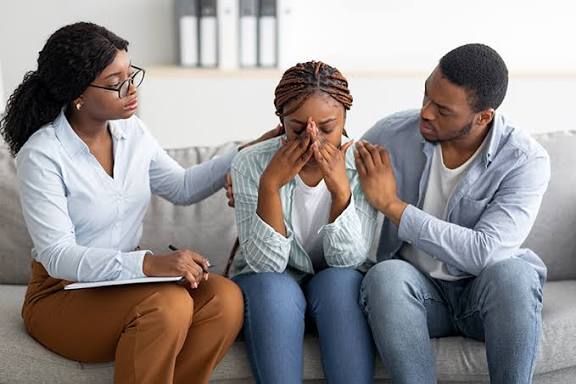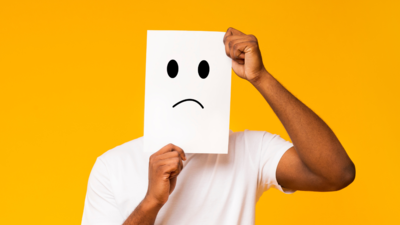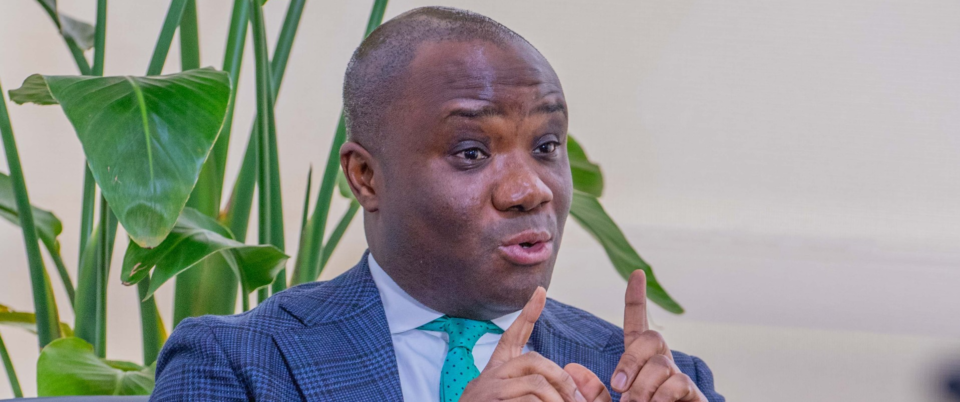Has Mental Health Awareness Gone Too Far, or Not Far Enough?

These days, it seems every slight inconvenience has a ready explanation, “my mental health”. You miss a class? Mental health. You stop replying to messages? Protecting my peace. You cancel plans last minute? Self-care. What was once a quiet and serious conversation has now entered everyday slang, woven into jokes, captions, and reasons for disappearing from WhatsApp groups. And, while it’s good that people finally have the language to talk about their emotions, something feels off. What began as a movement to end a stigma has started sounding like a catchphrase, a convenient shield often used for avoidance. Still, before we dismiss it as overused, it’s worth asking the question: have we taken mental health awareness too far, or are we still only scratching the surface?
The Journey from Taboo to Trend
Not too long ago, mental health wasn’t something openly discussed in many African homes. Mental illness was either spiritualized, hidden or dismissed entirely. This was due to stigma, a lack of knowledge about mental health issues, and generational differences in beliefs about emotional wellbeing. Societies that prized endurance often saw vulnerability as failure. Strength was defined by how much pain you could carry without complaint. Yet beneath that surface, generations quietly suffered, masking trauma with productivity and pain with religion.
Then, slowly, the world began to change. Global advocacy and digital communities gave new visibility to emotional struggles. In Nigeria and across Africa, conversations on X, podcasts, and YouTube began to normalize therapy and self-awareness. The language of psychology entered everyday speech and words that were once strange in our vocabulary became familiar, even fashionable. Social media became a space for vulnerability as people began to open up about panic attacks, burnout, trauma, and depression. Celebrities spoke about therapy; influencers encouraged self-care. Suddenly, the language of emotions was everywhere.
It was a revolution of sorts. For the first time, people could name their pain, express vulnerability, and ask for help without shame. However, like all revolutions, it came with excesses and contradictions.
In many parts of the world, especially across Africa, mental illness was something whispered about, sometimes even mocked. The silence wasn’t just ignorance, it was cultural.
The Rise of Therapy Culture
The internet has made mental health both visible and viral. And everywhere, people are finally seeing themselves in others’ stories. Yet, there’s another side to it, the performance of pain.
Social media rewards confessions and vulnerability gets engagement. And so, a new kind of emotional expression has emerged, one that sometimes blurs the lines between authenticity and performance. People have begun to talk about healing more than they actually healed. It's now trendy to make reference to one’s steps to recovery even when those statements lacked depth or personal growth. However, this isn’t to mock anyone genuinely struggling, it is to acknowledge how the digital age has turned self-care into a lifestyle brand, and speaking about therapy into a language of social belonging.
The real danger isn’t that people are talking about their mental health, it's that sometimes, they’re performing it.

When Awareness Becomes Excuse
Social Insight
Navigate the Rhythms of African Communities
Bold Conversations. Real Impact. True Narratives.
The truth is, somewhere along the way, “mental health” became a defence mechanism for everything, a means to get out of accountability. Didn’t follow through on a promise? My mental health hasn’t been great lately. Behaved badly under stress? That’s my trauma response.
In a culture that’s learning empathy, it’s easy for compassion to turn into indulgence of bad behaviours. The balance between mental strain and moral responsibility is very delicate. Of course, people have limits, and burnout is real. But not every moment of discomfort is a breakdown, and not every consequence can be pushed under the banner of “mental health.”
Part of it stems from generational culture. Gen Z, in particular, has grown up in the most self-aware yet self-diagnosing age, turning some of these crucial things into identity rather than a description. This misuse doesn’t just trivialize the concept, it hurts those who genuinely need help. When everyone claims emotional distress, society starts to question the sincerity of actual cases. The cry for understanding becomes noise, and the people truly struggling and drowning get submerged.
Between Struggle and Spectacle
If we're being honest, there are two sides to this story. On one side are those genuinely fighting invisible battles. For them, mental health advocacy has been lifesaving. It gave them a voice, language, and permission to seek help.
On the other side are people who trivialize the same reality. The internet has turned mental health matters into everyday slang, and serious diagnoses into casual jokes.
This trivialization creates a dangerous ripple effect, making it harder for genuine cries for help to be recognized. People start doubting the authenticity of others’ pain.
There’s also the issue of access. Therapy and professional help remains a luxury for many. In several African countries, mental health care is underfunded or stigmatized and most people rely on informal support for help. So, while awareness has grown, accessibility hasn’t quite caught up. The irony is striking: in an era where mental health content floods timelines, mental health systems remain thin on the ground. And in that gap, misinformation thrives.
Gen Z, Labels, and the Culture of Self-Diagnosis
Every generation has its vocabulary and for Gen Z, it’s psychology. They grew up with this language and now, it's the order of the day. Sometimes, it’s genuine; other times, it's exaggerated. Information and self-diagnosis now seems intertwined, and many now attach mental health labels to explain their habits. While it’s empowering to learn the language of the mind, not every behaviour fits a clinical category.
However, we cannot completely fault Gen Z. Having been raised in this age, particularly growing up online, it's normal that their struggles and coping mechanisms lie there too. However, the missing key is guidance, as they must learn how to separate introspection from indulgence, and self-awareness from self-absorption. The next phase of mental health awareness must teach not just how to speak about pain, but how to process it responsibly.
The Balance Between Care and Accountability
Social Insight
Navigate the Rhythms of African Communities
Bold Conversations. Real Impact. True Narratives.
True awareness is not just about naming emotions, it’s about managing them. Boundaries are vital, but accountability is too. A culture that only preaches self-care without self-reflection risks cultivating avoidance. Healing at its best is active, not passive. It means knowing when to rest and when to rise, when to ask for help and when to show up despite discomfort. For African societies, the balance might lie in integration. Emotional health isn’t foreign to our culture, it's just expressed differently now, and so modern awareness shouldn’t erase those roots but expand them. We can blend old wisdom with new knowledge. Mental health should be about harmony of both worlds, using them to build stronger, healthier minds.

Beyond the Buzzwords
Mental health awareness has achieved what once seemed impossible, making people look inward, admit vulnerability, and speak their truths. That in itself is progress. But progress is never perfect.
The goal isn’t to ridicule those who use mental health language loosely, nor to silence those who struggle. It’s to call for sincerity. We need awareness that’s honest, not polished. We need conversations that are empathetic, not scripted. The truth is, mental health awareness hasn’t gone too far, it just hasn’t gone deep enough.
We’ve normalized talking about and identifying our struggles, but not yet normalized doing the hard, silent work of growth.
And maybe that’s the next chapter, one where we carry the awareness forward, but with maturity. Because in the end, caring for your mind isn’t about escaping life, it’s about engaging it more honestly.
You may also like...
When Sacred Calendars Align: What a Rare Religious Overlap Can Teach Us

As Lent, Ramadan, and the Lunar calendar converge in February 2026, this short piece explores religious tolerance, commu...
Arsenal Under Fire: Arteta Defiantly Rejects 'Bottlers' Label Amid Title Race Nerves!

Mikel Arteta vehemently denies accusations of Arsenal being "bottlers" following a stumble against Wolves, which handed ...
Sensational Transfer Buzz: Casemiro Linked with Messi or Ronaldo Reunion Post-Man Utd Exit!

The latest transfer window sees major shifts as Manchester United's Casemiro draws interest from Inter Miami and Al Nass...
WBD Deal Heats Up: Netflix Co-CEO Fights for Takeover Amid DOJ Approval Claims!

Netflix co-CEO Ted Sarandos is vigorously advocating for the company's $83 billion acquisition of Warner Bros. Discovery...
KPop Demon Hunters' Stars and Songwriters Celebrate Lunar New Year Success!

Brooks Brothers and Gold House celebrated Lunar New Year with a celebrity-filled dinner in Beverly Hills, featuring rema...
Life-Saving Breakthrough: New US-Backed HIV Injection to Reach Thousands in Zimbabwe

The United States is backing a new twice-yearly HIV prevention injection, lenacapavir (LEN), for 271,000 people in Zimba...
OpenAI's Moral Crossroads: Nearly Tipped Off Police About School Shooter Threat Months Ago
ChatGPT-maker OpenAI disclosed it had identified Jesse Van Rootselaar's account for violent activities last year, prior ...
MTN Nigeria's Market Soars: Stock Hits Record High Post $6.2B Deal

MTN Nigeria's shares surged to a record high following MTN Group's $6.2 billion acquisition of IHS Towers. This strategi...





